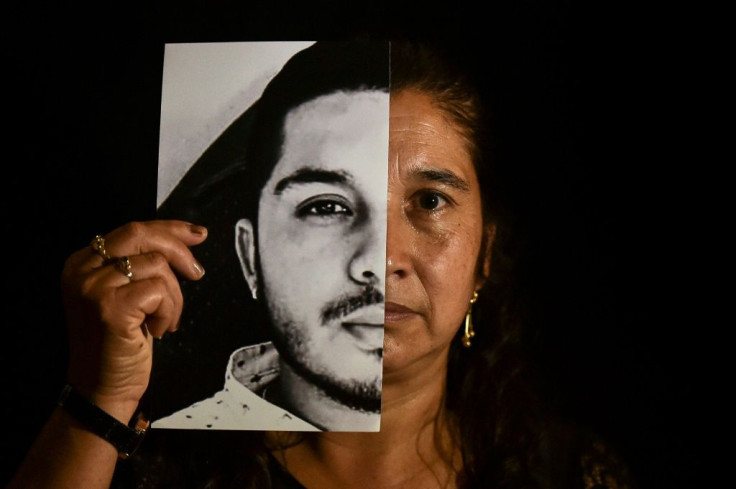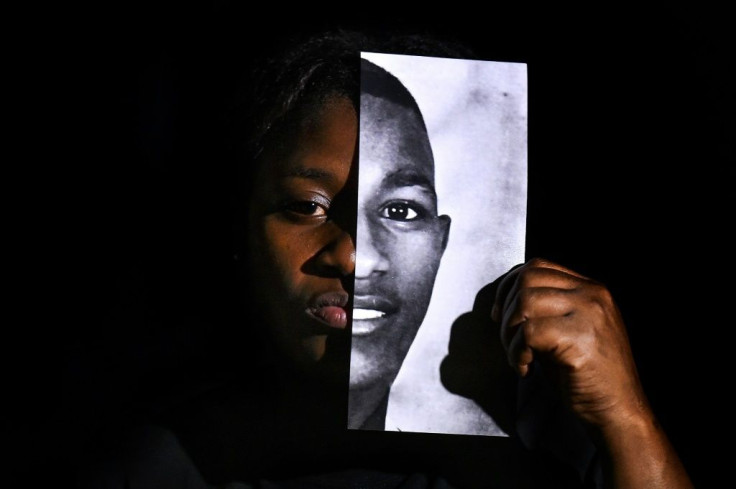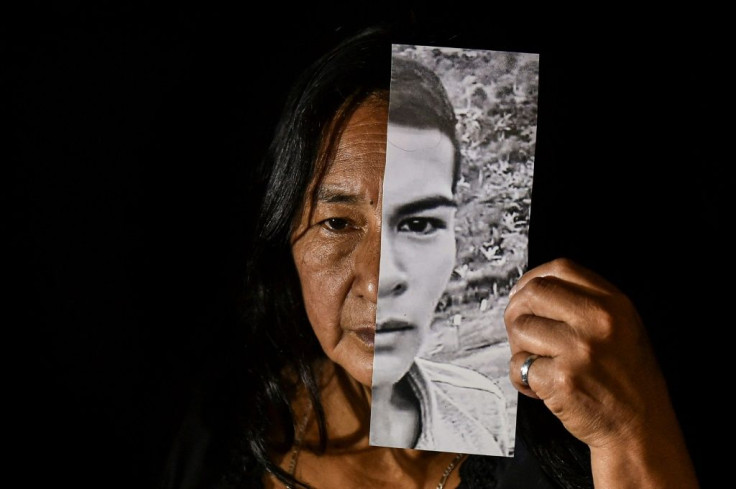Mothers Seek Answers In Wake Of Colombian Massacres
A wave of deadly violence is once again roiling rural Colombia, after several years of comparative respite following the 2016 peace agreement with the FARC guerrillas.
At least 50 massacres -- defined as a single act in which three or more people are killed -- have been committed since the beginning of the year, according to the Independent Observatory of Violence, Indepaz.
The government has linked the attacks to emboldened drug trafficking gangs moving in to areas previously occupied by ex-FARC militants.

In the past six weeks alone, 64 people have been killed in 15 different incidents.
The victims are mostly boys and men in their teens and twenties, leaving their grief-stricken mothers demanding answers.
Oscar Andres Obando, 24, was shot dead on August 15, his father's birthday.

"I watched my son die in my arms," said his mother, Gladys Betancourth, a 51-year old nurse's aide, recalling Oscar's death in hospital.
Armed men had broken into a party Oscar was attending and killed him and seven other young men.
Even in a period of relative peace in Colombia, hundreds of people continue to be killed as various armed groups fight over illegal mining and cocaine trafficking routes to Central America.

"It was my turn to see my son die in my arms and in the arms of his father," Betancourth told AFP.
She says she does not know who killed her soccer-playing youngest son or why.
Though one thing is clear to her. It was not the ELN, the country's last active rebel group, as suggested by officials.
She has already had to come to terms with the loss of another son, killed in an accident two years ago.

"I have no desire to live anymore," she says.
"That day I made them rice with stewed meat," says Lucila Huila. But the meal she cooked for her two sons was never served.

Esneider Collazos, 23, and his 25-year-old brother Heine had been abducted on their way to their father's farm near the town of El Tambo.
The brothers, both carpenters, had been on their way from Popayan to cut trees. They never arrived.
Their 53-year-old mother received an anonymous call later from a man saying that her sons had been kidnapped.
She recalled the "horrible anguish" of waiting in her tin-roofed wooden house -- near the Cauca department capital of Popayan -- until she finally learned of their deaths. They had been shot dead with four other victims.
Objects made by her boys -- the bed she sleeps in, a closet, a chopping board in the kitchen -- are painful reminders for Lucila.
Now she says she prays that nothing will happen to her five remaining children.
Nancy Quinonez says she's filled with "rage and hate" when she thinks of the discovery of the bodies of five children in a canyon in the town of Cali on August 11.
Her 15-year-old son Luis Fernando was among them.
"Whoever did this is an animal, even worse than an animal," she said.
According to state prosecutors, the murders were committed by security guards protecting sugar cane fields where the teenagers used to go hunting.
Local authorities have captured two suspects and are looking for a third.
But that has done little to console her. "Nothing can fill the void left behind by my son. Without Luis Fernando, I am nobody."
The violence continued even after their deaths. A grenade exploded at a wake for the boys, killing one person.
The mother of one of the other victims received threats, but Quinonez says she is no longer afraid of anything.
"We mothers will go on until the end, until the whole truth is known."
© Copyright AFP 2024. All rights reserved.





















